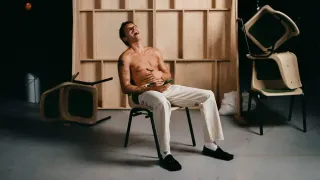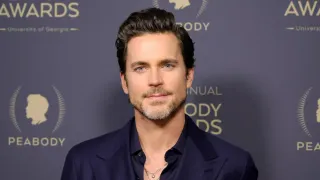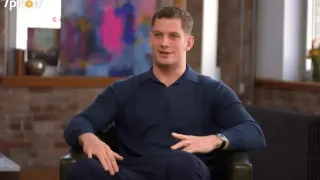July 15, 2020
Parson: Trump 'Focused' on Situation with St. Louis Couple
Jim Salter READ TIME: 3 MIN.
Missouri Gov. Mike Parson said President Donald Trump is focused on and concerned about the possibility that a white St. Louis couple could face criminal charges for displaying guns as they defended their home during a racial injustice protest.
Parson told reporters Tuesday that he had just been on the phone with Trump and U.S. Attorney General William Barr. The phone call came amid reports that St. Louis Circuit Attorney Kim Gardner, a Democrat, may file charges against Mark and Patricia McCloskey, both of them lawyers in their 60s. The couple wielded guns on June 28 as protesters marched by their Renaissance palazzo-style mansion on the way to the home of St. Louis Mayor Lyda Krewson.
A police report said the couple heard a loud commotion and saw a large group of people break an iron gate marked with "No Trespassing" and "Private Street" signs.
Video showed protesters walking through the gate and it was unclear when it was damaged. The widely viewed video showed Mark McCloskey wielding a long-barreled gun and Patricia McCloskey standing next to him waving a handgun.
The actions of the couple have drawn scorn and ridicule from some, praise and support from others. Gardner's spokeswoman said Tuesday that the case is still under investigation and no charges have been filed, though authorities executed a search warrant at the mansion late last week.
Parson, a Republican and a staunch Trump supporter, is also a former sheriff and state representative who co-authored Missouri's "castle doctrine" law that justifies the use of deadly force when protecting one's home.
Parson said he told Trump that it's difficult to remove an elected official from office in Missouri, though he didn't say if Trump had asked if Gardner could be removed.
"I think the president didn't like what he was seeing, and the way people are being treated," Parson said. "I think you'll see some sort of actions."
In an interview Tuesday with Townhall Media, Trump defended the couple, saying "they were going to be beat up badly, if they were lucky" and that their house was going to be ransacked and probably burned. He called talk of prosecuting them a disgrace.
It's unclear what either Trump or Barr could do, but Parson said he expects that both "are going to take a look at it."
Gardner noted in a statement Tuesday that she hasn't decided whether to file charges against Mark and Patricia McCloskey. She also said Trump and Parson continue to "play politics with the handling of this matter, spreading misinformation and distorting the truth."
"It is unbelievable the Governor of the state of Missouri would seek advice from one of the most divisive leaders in our generation to overpower the discretion of a locally elected prosecutor," Gardner said, adding that "It is also incredible that at a time when our nation is dealing with a rapidly spreading deadly virus and our State reported a record number of new infections, they are launching these dog-whistle attacks against me."
Gardner became St. Louis' first-ever Black circuit attorney when she took office after winning election in 2016. Her 3 � years in office have drawn strong support from the Black community, especially for reform efforts aimed at reducing incarceration and stopping the prosecution of low-level crimes such as marijuana possession.
But she's also drawn scorn from others, accusing her of being weak on crime and motivated by politics.
In 2018, Gardner charged then-Gov. Eric Greitens with felony invasion of privacy for allegedly taking a compromising photo of a woman during an extra-marital affair. Greitens, a Republican, denied the allegation and the charge was eventually dropped, but he resigned in June that year.
St. Louis annually ranks among the nation's deadliest cities, and 2020 is on pace for one of its deadliest years ever. Parson is planning a special session to address violent crime in St. Louis and Kansas City, and he said Gardner should be focused on crime, too, not the McCloskeys.
"That couple had every right to protect their property," Parson said.
Trump "understands the situation in Missouri, he understands the situation in St. Louis, and how out of control it is for a prosecutor to let violent criminals off and not do their job and try to attack law-abiding citizens," Parson said.
"The president said he would do everything he could within his powers to help with this situation, that he would be taking action to do that. I'm thankful that he's getting involved in the situation, I'm thankful that he's going to stand up for people on their legal rights and we're going to move forward in this state," Parson said.






